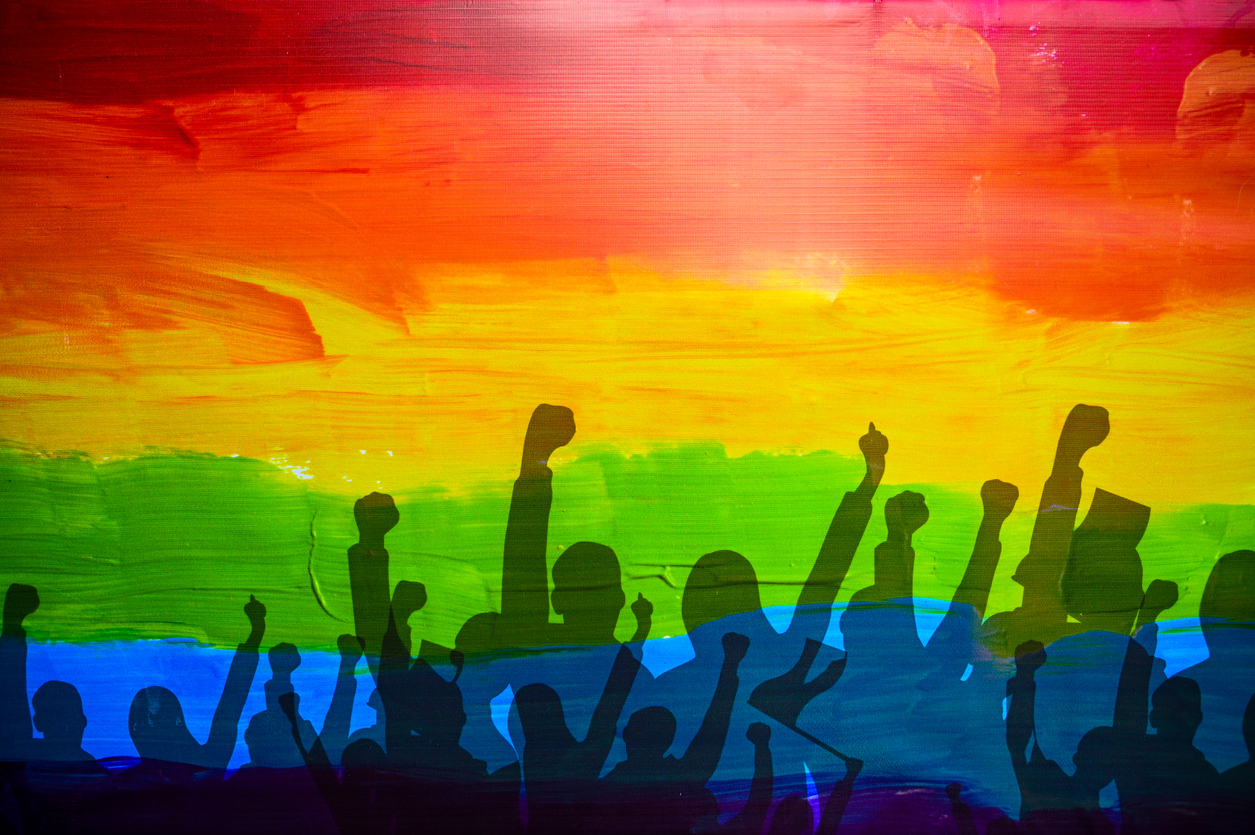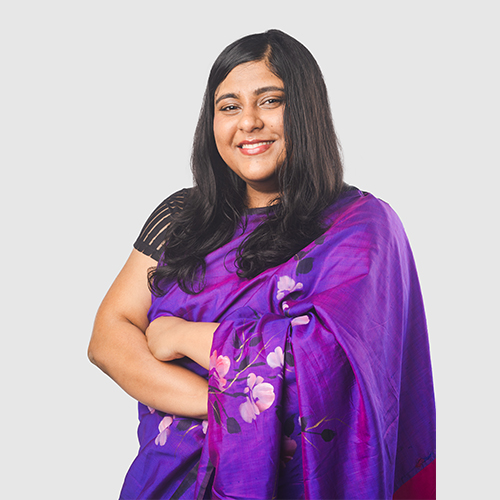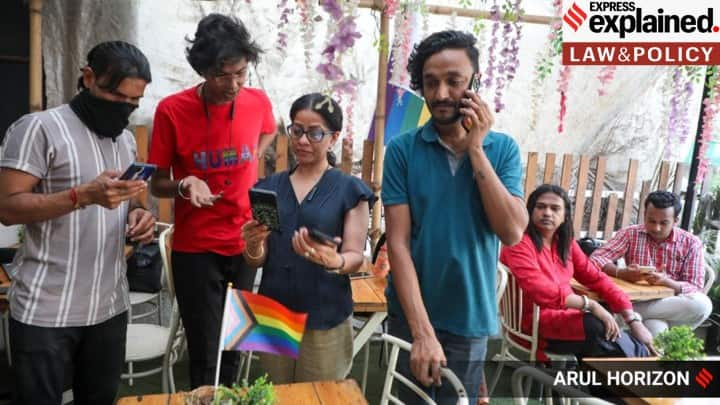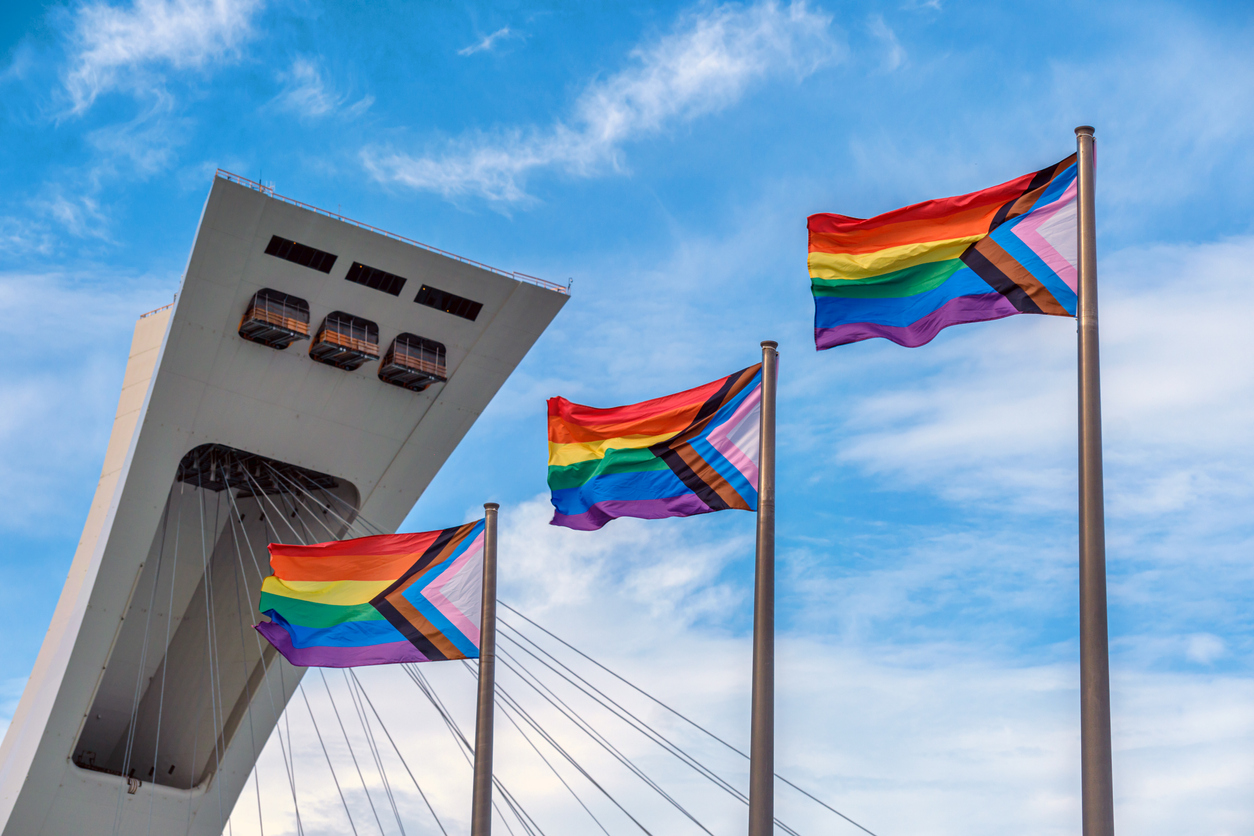
Beyond Marriage Equality
Chosen families and the right to live our lives as we are
This post draws from a panel discussion organised by the National Network of LBI Women and Trans Persons and PUCL at The Press Club, New Delhi on April 3, 2023 to discuss the findings of a public hearing on queer people’s experience of family violence. The panelists also talked about the arguments and demands raised before the Supreme Court of India in a petition on demands for marriage equality and the right to a chosen family.
Today and onward, the Supreme Court is set to hear multiple petitions on marriage equality in the country – the right of two consenting adults to marry irrespective of their gender or sexuality. The complexity and plurality of marriage laws in the country means that about twenty-odd petitions argue for the right of queer persons to get married under different laws – such as the Special Marriage Act of 1954 (SMA), Hindu Marriage Act of 1955, and the Foreign Marriage Act of 1969. One of the petitions, filed by four members of the National Network of LBI Women and Trans Persons and three anonymised couples, goes beyond a demand for marriage equality. In a fundamental yet revolutionary sense, it urges the court to reimagine the concept of “family” beyond ties of blood or marriage, and demands the legal right to chosen family and kinship.
Queer people’s experiences with familial violence inform much of the context of the petition. Adding to this important narrative, a one-day closed-door public hearing was organised by the National Network of LBI Women and Trans Persons and PUCL, in which LGBTQIA+ people shared their testimonies of family violence. At a press conference about this hearing, a panel comprising Asif Iqbal (Co-founder, Dhanak, Delhi); Chayanika Shah (Co-founder, LABIA); Divya Taneja (Special Cell for Women and Children, Mumbai); Kavita Krishnan (Feminist Activist, Delhi); Paromita Chakravarti (Feminist Academic, Kolkata); and Veena Gowda (Feminist Lawyer, Mumbai) – and moderated by Poushali Basak (Sappho for Equality, Kolkata) – explained the findings from the hearing and the significance of the petition.
Traditional family systems, conditional care, and the (broken) promise of belonging
In India, the traditional family system is often perceived as central to most aspects of one’s social life. A child is assumed to be safest with the family they are born into – and as soon as they grow up, monogamous heterosexual marriage is seen as a logical progression. The traditional family is the gateway to accessing healthcare, inheritance, insurance, financial autonomy, etc. This is largely because one needs to name their “next of kin” (closest living blood relative) or spouse as a guardian or nominee in most legal documents. Even outside formal rules, social prejudices make it difficult for an unmarried person, especially if they are socio-economically marginalized, to access housing and community. At an interpersonal level, the traditional family is associated with a promise of safety, love, care, and belonging.
However, queer people often find themselves at the receiving end of family violence when they are seen to challenge traditional expectations. This ‘challenge’ comes in the form of not conforming to patriarchal gender norms, or exploring intimacy that clashes with monogamous heterosexual marriage systems bound by cultural rules of faith and caste. The petition thoughtfully weaves testimonies of queer people across diverse socio-economic backgrounds to underscore why chosen families gain significance in the face of such violence. From being forced into family-ordained marriage or conversion therapy, facing physical and emotional abuse, to being disowned or having false cases of abduction or assault framed against their partners, the gamut of such experiences challenges the perception of the family as a safe space, and demonstrates how it can be a site of traumatic violence for many. This violence is intersectional – an inter-caste or inter-faith queer couple is likely to face violence in a compounded manner, because their existence challenges multiple social hierarchies. The sense of betrayal and loss felt when our “own” hurts us is evident in the testimonies shared in the report on family violence published by the organisers of the panel discussion. In such situations, queer persons often rely upon “chosen” or “found” families, networks, and communities – which may or may not include their romantic partner(s).
“Best interests” and the centrality of forced reconciliation
The chosen, “atypical” family is not recognised by the law or authorities that queer people interact with in different spheres of life. Paromita and Divya explained how the current legal system forces survivors of family violence to continue being legally bound to their abusers while they try to live their lives as autonomous social beings. It denies queer people legal recognition to their chosen community, forces them to let a person who does not share their worldview to make decisions on their behalf, and allows their abusers to retain control and oversight in their lives. Rituparna Borah (Co-founder, Nazariya), one of the petitioners, added that while some of us are able to exert our choices regarding nomination and community owing to our other socio-economic privileges, most queer people do not enjoy such power over people in authority.
Kavita pointed out how doctors, rehabilitation centres, mental health institutions, shelter homes, the police, and community/ religious leaders are often an extension of the violent family. Their protectionist approaches do not respect personal autonomy, and prioritise reconciliation with abusive families as ideal “solutions” to conflict. In Asif’s experience, district administrations, social welfare departments, and child welfare committees offer little beyond unsolicited advice, which too is centred around conciliation with traditional families. This is exacerbated by dysfunctional support systems in our country in general – facilities such as shelter homes, children’s homes, old-age homes, and one-stop centres for survivors of domestic violence are underfunded, understaffed, insufficient in number, and overcrowded. In many cases they themselves are sites of violence.
Where should the State step in – and when should it stay away?
Accounts from queer people in India have consistently pointed to the social and legal vacuum in which they find themselves. They are forced to fend for themselves in a society that “decriminalises” their sexuality and gives them the right to determine their gender identity – but binds them to the same oppressive structures from which they seek to break out. Veena asserted that all social systems including marriage and family are constructs that can and should be continually examined and reconstructed. She referred to the Mental Healthcare Act of 2017, which recognises the right of a person to appoint “any suitable person” as their representative, as an example of the law deviating from dominant concepts like “next of kin”. She stressed on the responsibility of the court to take into account lived experiences of queer people and reimagine the law, and the duty of the State to enable queer persons to lead their lives with dignity.
The petition, therefore, demands marriage equality under SMA, and removal of SMA procedures such as notice and objection which jeopardise the safety of non-traditional couples – whether they are queer or not. It demands the court to recognise the right of the LGBT+ community to have a “chosen family” as part of their fundamental right to life, dignity, and personal liberty. Finally, it demands recognition of the right of an unmarried person to nominate “any person” for making decisions on their behalf in case of incapacity, and for assigning any legal right/ benefit.
The panel pointed out that while the recognition of these rights as fundamental and constitutional is crucial, the court and the State should stay away from regulating what a chosen family or a suitable nominee should look like. Specifically, marriage – traditionally premised on caste and faith – should not be considered the central or most “legitimate” way to create a chosen family. Chayanika succinctly summarised the core of the prayers of the petition – queer people should have the right to choose and create their own families, and live their lives the way they want to – whether within the institution of monogamous marriage or otherwise. She added that even though legal recognition of these rights is necessary, the ultimate goal of such recognition is to create a legal system that does not interfere and negotiate with every aspect of queer life. To create a society in which queer people can be, and live a non-negotiated life of their choosing.



